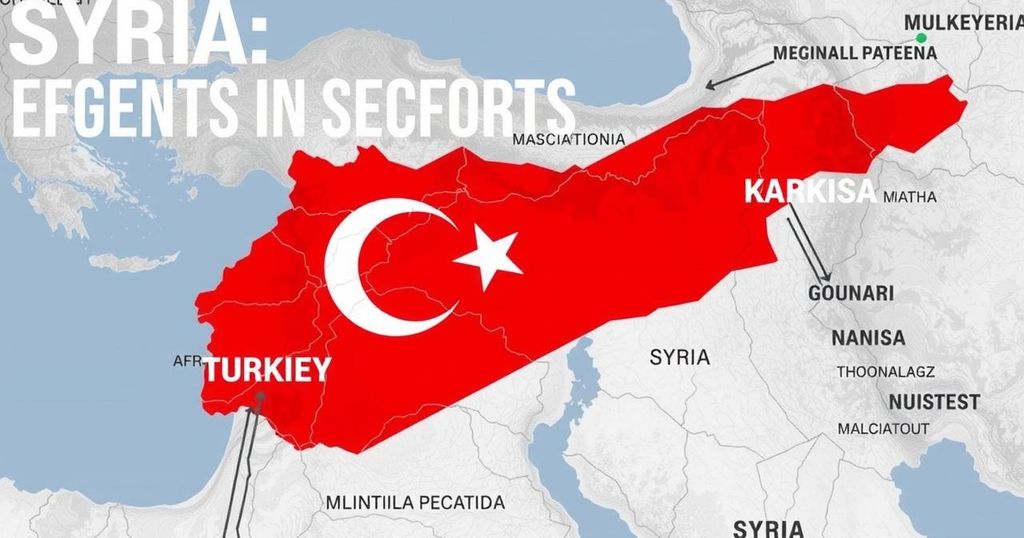Turkey’s Position in Post-Assad Syria: An Overstated Victory?
Despite claims of Turkey’s victory in Syria following Bashar al-Assad’s downfall, significant challenges remain for Erdogan. Turkey’s partnerships with HTS and other factions display potential but also reveal limits to its influence. The Kurdish issue and regional dynamics further complicate Turkey’s position, suggesting that any proclaimed triumph is overly optimistic and overlooks complexities inherent in the current geopolitical landscape.
Following Bashar al-Assad’s fall in mid-December, many analysts have prematurely hailed Turkey as the “winner” in Syria. However, this narrative overlooks significant challenges that President Recep Tayyip Erdogan faces in consolidating power in Damascus. While Turkey has positioned itself strategically, with its affiliations to groups like Hayat Tahrir al-Sham (HTS) and the Syrian National Army, this association does not equate to a definitive victory. The Turkish government’s tactics were originally aimed at pressuring Assad into negotiations rather than prompting his ousting, which complicates claims of triumph.
Furthermore, HTS and other factions began to establish their autonomy, as evidenced by other nations, including the United States and European diplomatic representatives, engaging directly with them. This suggests that Turkey’s influence in post-Assad Syria is not as clear-cut as portrayed. Additionally, Turkey faces the persistent issue of Kurdish nationalism, particularly with the presence of the People’s Protection Units (YPG), which poses ongoing challenges to Erdogan’s ambitions.
Thus, while Turkey’s involvement remains significant, the narrative of a clear victory is premature and laden with complexities. Historical miscalculations in Syria further caution against overconfidence, signaling that the evolving political landscape requires prudent navigation to secure Turkey’s interests in the region.
The situation in Syria has been fluid since the civil conflict began, with numerous factions vying for control following Assad’s government’s weakening. Analysts have often tried to interpret the dynamics of power among these groups, especially in the context of Turkey’s involvement. The partnership between Turkey and Syrian military factions suggests a significant shift; however, it also exposes Turkey to regional rivalries and shifting alliances that may undermine its position. The role of Kurdish groups and their alliances with international actors, particularly the United States, complicates Turkey’s strategy further, demanding a nuanced understanding of local and international relations in this geopolitically sensitive area.
In conclusion, while Turkey has made strides in Syria by aligning with key factions, the notion that it has effectively won the conflict is misplaced. The realities of regional politics, alongside internal and external pressures, reveal that Erdogan must navigate a complex web of alliances and challenges as he seeks to establish sustained influence in the aftermath of Assad’s regime. As the situation develops, it is clear that the dynamics at play call for careful consideration, beyond triumphant claims of victory.
Original Source: foreignpolicy.com




Post Comment